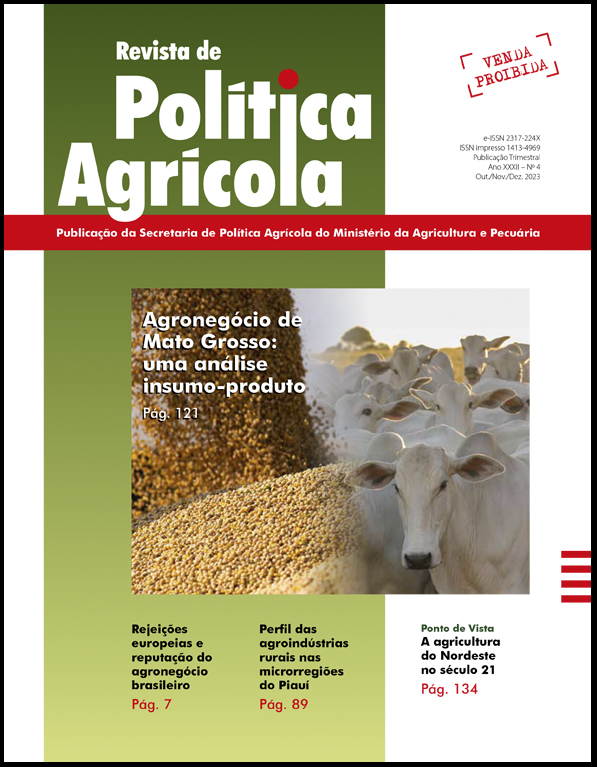European rejections and the reputation of Brazilian agribusiness
Keywords:
Brazilian exports, regulations, food safety, violations.Abstract
This study explored the information available by the Rapid Alert System for Food and Feed (RASFF) platform and analyzed the systematic rejections of Brazilian products, discussing their trade and reputational implications for Brazil. Between 2001 and 2021, measures (2,761) related to Brazilian agro-industrial products were registered, from which 61.6% represented rejection. Among the most rejected products by the European market, emphasis is given to “poultry meat” and “herbs and spices”. The most common causes of rejections are associated with microbiological issues, mainly those related to salmonella (68.9%) that occurs in chicken and black pepper, and those related to the presence of aflatoxin (10.1%) present in cashew and Brazil nuts exported by Brazil. After the rejections, the actions observed included the return of the shipment, detention, and destruction of the items, generating losses and additional costs for suppliers. These results highlight the need to improve the surveillance, inspection, and control of exported national products, with a focus on microbiological prevention and control. These initiatives aim to guarantee the quality and safety of exported products, and the protection of national consumers.Downloads
Published
2024-05-07
How to Cite
Martins, M. M. V., & Monteiro, V. M. (2024). European rejections and the reputation of Brazilian agribusiness. Revista De Política Agrícola, 32(4), 7. Retrieved from https://rpa.sede.embrapa.br/RPA/article/view/1913
Issue
Section
Artigos Científicos


